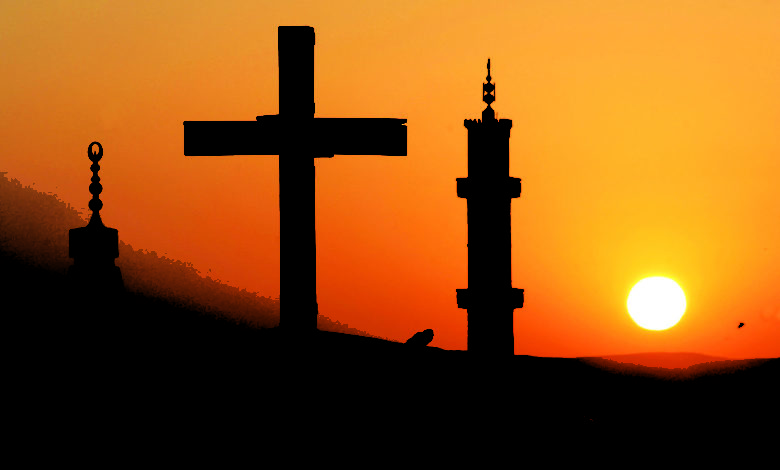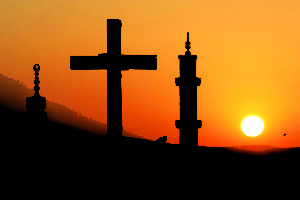From religious tolerance to acceptance and promotion of inter-religious dialogue
Our primary values allow us to achieve a mutual acceptance rather than tolerance of religious beliefs. Knowledge builds trust and self-confidence, particularly within a secular society. Inter-religious dialogue is key to conflict resolution.

eorges Tamer: We have compiled a list of key concepts in Judaism, Christianity and Islam to promote inter-religious dialogue. Such ideas will be discussed at conferences and further clarified by renowned scholars of all three religions, and the findings will be published in plain language. The first volumes are due to be published in 2019.
Every chapter is according to a uniform scheme. The subjects discussed include the language used and the historical evolution of the concepts as well as their many variations, that is, how diverse the understanding of such concepts is even within a single religion. The primary emphasis then lies on the commonalities and disparities between the three monotheistic religions when analyzing these principles.
Which kind of idea are you working on now?
Tamer: We are currently planning conferences on the concepts of ‘time’ and ‘history’ (12-14 December this year) to be followed in 2019 by the concepts of “human being”, “sexuality”, “body”, “soul”, “violence” and “just war”. We are also working on publications dealing with the topics already discussed, in particular the volume on liberty from a Jewish, Christian and Islamic point of view. Every definition has a separate volume dedicated to it. The format is uniform: an introduction, three chapters, and an epilog describing similarities and differences and explaining the meaning of the word in contemporary discourseTamer: there is a website that provides summaries in German, English, and Arabic in the form of a study on each of the nine previously held conferences. Short explanations of the concepts – particularly in Arabic – are available on our YouTube channel to make our findings accessible to those who have little knowledge of German, specifically for the benefit of refugees too. We are on Facebook and on Twitter, too.
Please give an example of a concept.
Tamer: In the three monotheistic religions, take the idea of “human being” What they all have in common is that they believe God to be the creator of all things, and thus therefore of mankind. But while Judaism focuses on upholding religious rules to live a life acceptable to God, in Christianity man is set free from Adam and Eve’s guilt through the resurrection and death on the cross of Jesus Christ.
Islam, which sees man as the representative of God on earth (khalifa), in this form does not accept “original sin” and therefore does not see man as requiring salvation. Therefore the Qur’an condemns Jesus’ death on the cross and stresses Sharia observance as the path to Paradise. There are not mere distinctions but significant discrepancies in the three sects with regard to the perception of man.
How did the idea for this research project arise?
Tamer: This was based on my understanding that inter-religious dialogue participants frequently use the same word without knowing that others recognize the meaning behind it differently. I’ve been involved in this area for many years and have found how things sometimes go unclear: what does my Muslim, Jewish or Christian interlocutor mean when he’s thinking about culture, sexuality, revelation, state, community or freedom? Such primary principles are the very foundation of certain religions.
What’s new about your approach?
Tamer: It’s a modern approach to scholarship, since we don’t view the principles individually but instead simultaneously in the respective religions. At the conferences our colleagues discuss the contents in detail with each other. The entire project has a framework which is discursive. This goes beyond scholarly study of the individual concepts to explore how we can learn from each other and to build connections between how we see the idea in our own religions and the other two.
What does that mean in concrete terms?
Tamer: Take the notion of revelation, for example. When, within the context of the project, a Christian theologian approaches the word revelation, he does so at least from the inner viewpoint of Christianity, but not without understanding how the concept is interpreted in Judaism and Islam. Conversely the same applies to Jewish and Muslim scholars. An example of how important these ties are: Jewish thought made vital strides in the Middle Ages within the framework of Islam-dominated Arab culture.
Does this mean that the religions are closer to each other than many people think?
Tamer: Yes and no. But they are closer to one another than is widely believed. And yet there are still far-reaching variations which many people don’t know about. The illusion may emerge in a superficially conducted inter-religious dialogue, that we are all far more alike in our beliefs than we once assumed, but assumptions may be misleading. For some instances it is true but in many others it is not so. We don’t just want parallels revealed here. We would also like to point out variations in order to identify them and then embrace them as well. We ‘re seeking insights into objective stuff. That’s the only way to value one another. Then the goal is to figure out what the gaps are – and then?
Tamer: The aim is not only to evaluate the differences but also to value the other individual in the way he or she needs to be understood, on the basis of the similarities and differences. Whether a Christian, Muslim, Jew or non-believer, I have to ask how the other person religiously defines his or herself and accept the otherness. It is not simply a matter of indifferent tolerance. They need a higher standard, namely appreciation and acceptance, than empathy, without seeking to smooth over differences. The project’s motto is an ancient Arab proverb that says ‘man is the enemy of what he does not know’.
What do you think about the current status of inter-religious dialogue?
Tamer: Well, today it definitely has a higher profile than it did a few decades ago. There are several dialog activities and gatherings, coordinated predominantly by religious organizations or individuals with strong religious beliefs, such as Cafe Abraham in Erlangen, founded by students from Jews, Christians and Muslims. The project branched out to other cities, too. Foundations and policy-makers promote dialogue. Yet it is also very important that people with different religions discuss matters of faith informally with each other, for example during Ramadan, the Muslim month of fasting, or at Christmas time.
But is that enough?
Tamer: We have some catching up to do, no doubt. At this point, though, I would like to emphasize that we are not an organization for inter-religious dialogue. We are scholars who are doing fundamental work, a kind of religious knowledge archaeology. As academics, we want to do what we can to acquire and disseminate perspectives on these topics and thus contribute to the battle against radicalisation and religious fanaticism while promoting social cohesion. Scholarship in our community is putting itself at the service of society.
At events we have seen time and time again how the topic of Islam causes so many insinuations, causing emotions to spill over easily. How will there ever be a conversation between the partners in this sort of atmosphere?
Tamer: I have had many instances of this myself. The tense atmosphere is all the more important to our work. Since sharing awareness about Islam significantly helps break down stereotypes and alleviate fears. Yet of course there are explanations for the dominant environment.
As for Germany, Islam is fairly new. When the Muslim community became more clearly formed here, on both sides problems and concerns emerged and the majority of society thought it was being questioned. Fear and even hostility against Muslims in general has grown in the wake of many terrorist attacks carried out in the name of Islam. Admittedly, the waves of refugees have contributed to aggravating the situation. Through our initiative we aim to defuse both sides of the agitators.
Tamer: If we were to take an political approach or use these experiences to create new walls, the danger of coercion would surely be a issue. They will not be looking for a rapprochement and shared understanding in that situation, but trying to demonstrate how far apart the religions actually are from each other. There, grants will allow a positive difference. We are conducting basic research in order to call things by their name, beyond any ideology or political interests.
Isn’t inter-religious dialogue losing its importance in our secular society?
Tamer: Christian ideals still power Europe’s secular communities, converted into a secular language. Even humanism has monotheistic views as its roots. And the importance of inter-religious dialogue is not dwindling. We are carrying forward the enlightenment project by contributing to the establishment of peaceful co-existence among religious communities.
In what way?
Tamer: The reality of a religion is a matter of faith, but we need knowledge throughout history of the historical origins of the main religious principles. Such primary principles help us arrive at a shared acceptance of religious beliefs rather than tolerance. Knowledge builds faith and trust in oneself, particularly in a secular society. Inter-religious dialogue is key to conflict resolution.
Then it is also important to know your own tradition.
Tamer: Just. Another explanation why our project is so badly needed. Integrating a large number of immigrants, most of whom are of Muslim faith, is a huge challenge for the whole of society. Most of them arrive in Germany with biases against Christians and Jews. There are historical explanations behind those biases. Therefore it is a big duty of society to share valuable knowledge about the other religions, which we take up in our project as a way of promoting the integration of immigrants.





